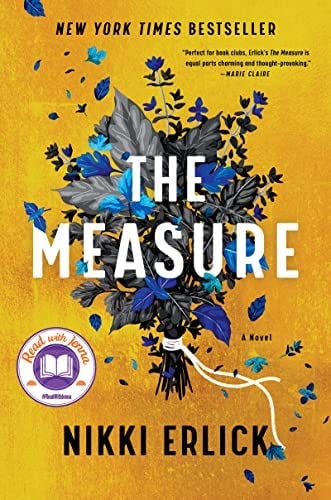What to Read Next (No. 246): The Measure of Your Life
Happy Friday, Readers!
It’s no secret that I enjoy books that make you ponder life’s big questions. Whether it’s fiction or non-fiction, books of all kinds can nudge you towards being a better person — more kind, empathetic, service-oriented, and courageous.
Today’s books meet that idea head-on in a more obvious way than most.
Let’s jump right in.
Don’t forget to join The Big Read — my online book club where we read classic books, together.
This month we’re digging into Frankenstein. In November and December we’ll be getting chilly with Alfred Lansing’s Endurance.
How to Be Perfect by Mike Schur
When it comes to non-fiction books coming out of Hollywood, I tend to have pretty low expectations. There are very few celebrity memoirs worth reading. Even Matthew McConaughey’s Greenlights, which has generally positive reviews, only held my interest for about the half the book before I got sick of the overly repetitive style and sentence structure.
So I was very pleasantly surprised when Mike Schur’s How to Be Perfect was entertaining, heartfelt, and surprisingly well-written. Schur has done a lot in Hollywood, most notably writing for The Office (he also played Mose!), co-creating Parks and Rec, and creating The Good Place.
This book is not your typical Hollywood fare. How to Be Perfect is, in fact, a very good primer on the moral philosophy that Schur explored so well in The Good Place. Schur has always been interested in big, hairy ethical questions (which is why he created The Good Place); this book is his exploration of those questions in a comedic, digestible form.
And ya know what, Reader? It works!
It’s a little textbook-like, at times, but consistently seeks to connect big philosophical ideas to daily life — should you punch your friends? do you have to return the grocery store cart? can you enjoy art created by morally reprehensible people?
And even though Schur’s sense of humor doesn’t always match my own, there were enough chuckles to keep me entertained throughout.
This was the September read for our book club, which produced a fantastic discussion. The reviews were a little mixed (ranging from 3 to 5 stars; I landed at 3.5), but most of the crowd was enthusiastic and happy to recommend it to just about anyone.
The Measure by Nikki Erlick
The premise of Erlick’s debut novel was irresistible for me. It’s worth sharing, at length, the back cover description:
“It seems like any other day. You wake up, pour a cup of coffee, and head out. But today, when you open your front door, waiting for you is a small wooden box. This box holds your fate inside: the answer to the exact number of years you will live.
In an instant, the world is thrust into a collective frenzy. Where did these boxes come from? What do they mean? Is there truth to what they promise?
As society comes together and pulls apart, everyone faces the same shocking choice: Do they wish to know how long they’ll live? And, if so, what will they do with that knowledge?”
We follow a handful of main characters — some “short-stringers” and some “long-stringers” — as they process what it means to know how long they’ll live.
Some of the ramifications that Erlick teases out are expected: people generally trying to “make the most of life,” social strife about “unhinged” short-stringers, scientific inquiries about the source and validity of the strings.
She also asks some more complex questions and explores less-expected scenarios: support groups based on how long your string is, “mixed-string” couples, the segregating of society into homogeneously-stringed groups.
Not everyone chooses to open their box, but, of course, most people do. It’d be nearly impossible to resist, wouldn’t it? That was one of the many inevitable questions I ended up asking myself while reading this novel: If you could know, would you choose to? There’s no easy answer — the number of compounding variables is just too great.
The most meaningful questions from this type of story are a bit obvious, but no less powerful:
What would you do with your life if you knew you had 50 more years?
What would you do with your life if you knew you had less than a year?
I always appreciate books that ask these types of big questions. And even though I thought the premise of The Measure was better than its execution, it’s still a solid, thought-provoking book.
That’s all for me this week! As always, I’d love to hear what you’re reading. Thanks so much for the time and inbox space — I deeply appreciate it.
-Jeremy




I’d open the box. Are the boxes accurate or do some defy what is in them? Or is that a spoiler?
Jeremy, read The Return of the Gods by Jonathan Cahn. Very revealing. Very important that folks read it.